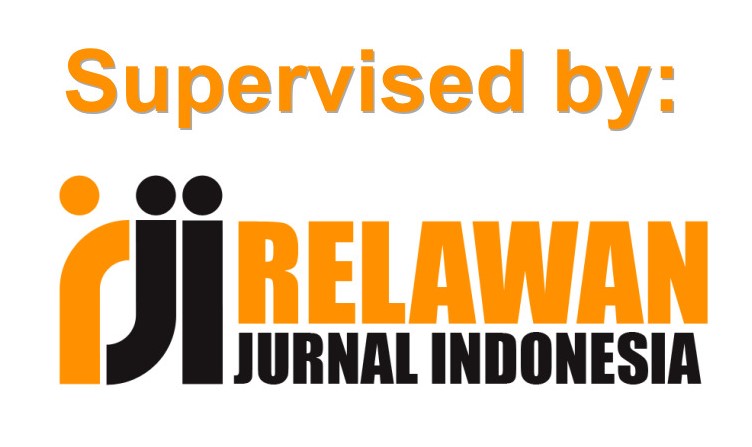Comprehending The Beatles Through its Song ‘Yellow Submarine’: Critical Discourse Analysis
DOI:
https://doi.org/10.24114/grenek.v13i2.62499Keywords:
Yellow Submarine, The Beatles, children, Critical Discourse AnalysisAbstract
This study aims to elaborate on The Beatles band through a study of one of its songs called Yellow Submarine. This study uses the Critical Discourse Analysis (CDA) approach, an approach that aims to describe, interpret, and critically explain in a qualitative manner about how discourse builds, maintains, and legitimizes social inequalities. A number of relevant primary and secondary literatures were studied and analyzed critically to understand and recognize the process of creating, producing, broadcasting, concert performance, and public reception for the song Yellow Submarine by the Beatles and its socio-cultural context. The results of the study showed that this song was dedicated to children who lost the joy and delight of their childhood due to ideological conflicts (capitalism-communism), social tensions, the Vietnam War, the Cold War, drugs, etc., in the 1960s. Although this song has been associated with various interpretations, ranging from drugs, money, war, peace, cowardice to death, most of The Beatles’ fans and observers believe there is an element of joy and delight that they would like to present to their children. They gave joy and delight, especially to children, when the state failed to provide them.References
Blommaert, J. (2005). Discourse. New York: Cambridge University Press.
Bloor, M., & Bloor, T. (2007). The Practice of Critical Discourse Analysis. An Introduction. USA: Hodder Arnold.
Caldas-Coulthard, C. R., & Coulthard, M. (1995). Texts and Practices: Readings in Critical Discourse Analysis. London: Routledge.
Charles, P. (2003). The Beatles: Pocket Essentials Music. London: Trafalgar Square Publishing.
Compton, T. M. (2017). Who Wrote the Beatle Songs? A History of Lennon-McCartney. USA: Pahreah Press.
Dancer, T. (2021). Critical Modesty in Contemporary Fiction. Oxford University Press. DOI: https://doi.org/10.1093/oso/9780192893321.001.000
Diemert, B. (2006). Reading the Beatles: Cultural Studies, Literary Criticism, and the Fab Four. Choice, 44(2), 383-388. https://www.jstor.org/stable/10.5325/style.40.4.383
Dybicz, P. (2023). A Genealogy of the Good and Critique of Hubris: A History of the Discourse on Social Welfare in the United States. Oxford University Press. https://doi.org/10.1093/oso/9780197670071.003.0008
El-Falaky, M. S. (2015). The Representation of Women in Street Songs: A Critical Discourse Analysis of Egyptian Mahraganat. Advances in Language and Literary Studies; Footscray, 6(5), 1–8. https://eric.ed.gov/?id=EJ1127437
El-Falaky, M. S., & Ahmed, A.-S. M. M. (2015). Coquetting Females versus Males of Manners: Critical Discourse Analysis of Egyptian Street Songs. Advances in Language and Literary Studies; Footscray, 6(5), 190–196. https://journals.aiac.org.au/index.php/alls/article/view/1748
Fairclough, N. (1995). Critical Discourse Analysis: The Critical Study of Language. London: Longmans, Green, and Company.
Gitlin, T. (2013). The Sixties: Years of Hope, Days of Rage. New York: Random House Publishing Group.
Inglis, I. (2008). Reading the Beatles: Cultural Studies, Literary Criticism, and the Fab Four. Popular Music, 27(3), 489–490. https://www.jstor.org/stable/10.5325/style.40.4.383
Khanjani, M. (2020). Voicing the Subaltern and Inspiring Change: Critical Discourse Analysis of the Autobiographical Song by the First Iranian Female Rapper. Liminalities, 16(1), 1–17. http://liminalities.net/16-1/voicing.pdf
Lebovic, S. (2017). Here, There and Everywhere: The Beatles, America, and Cultural Globalization, 1964-1968. Journal of American Studies, 51(1), 43–65. https://doi.org/10.1017/S0021875815002686
Lemke, J. L. (1995). Textual Politics: Discourse and Social Dynamics. Prancis: Taylor & Francis.
Lewisohn, M. (1992). The Complete Beatles Chronicle. USA: Harmony Books.
Predelli, S. (2020). Fictional Discourse: A Radical Fictionalist Semantics. New York: Oxford University Press. https://doi.org/10.1093/oso/9780198854128.001.0001
Putri, I. T., & Triyono, S. (2018). We Shall Overcome: A Humanity Song by Roger Waters: Critical Discourse Analysis. Humaniora, 30(2), 119–127. https://doi.org/102216/jh.v29i3.32775
Shumba, K., & Meyer-Weitz, A. (2019). Addressing the Socio-Cultural Drivers of HIV/AIDS through Indigenous Music: A Critical Discourse Analysis of Selected Songs by Maskandi Group, Izingane Zoma. African Renaissance, 16(4), 133–155. https://hdl.handle.net/10520/EJC-1a85ac8da9
Stark, S. D. (2005). Meet the Beatles: A Cultural History of the Band that Shook Youth, Gender, and the World. London: Harper Collins Publishers, Inc.
Taylor, D. (1983). As Time Goes By: Living in the Sixties with John Lennon, Paul McCartney. London: Pierian.
Urish, B., & Bielen, K. (2007). The Words and Music of John Lennon. London: The Praeger.
Van Dijk, T. A. (1993a). Elite Discourse and Racism. New York: Sage Publication Inc.
Van Dijk, T. A. (1993b). Principles of Critical Discourse Analysis. Discourse & Society, 4, 249–283. https://doi.org/10.1177/0957926593004002006
Van Dijk, T. A. (1998). Ideology: A Multidisciplinary Approach. New York: Sage.
Van Dijk, T. A. (2008). Discourse and Power. New York: Sage.
Wilson, R. (2023). Critical Forms: Forms of Literary Criticism, 1750-2020. Oxford University Press. https://doi.org/10.1093/oso/9780198881117.001.0001
Wodak, R. (1989). Language, Power and Ideology: Studies in Political Discourse. New York: Benjamins.
Wodak, R., & Meyer, M. (2009). Methods for Critical Discourse Analysis. New York: Sage.
Wolfe, A. S., & Haefner, M. (1996). Taste Cultures, Culture Classes, Affective Alliances, and Popular Music Reception: Theory, Methodology, and an Application to a Beatles Song. Popular Music and Society, 20(4), 127–155. https://doi.org/10.1080/03007769608591648
Downloads
Published
Issue
Section
License
Copyright (c) 2024 Fadlil Munawwar Manshur, Faruk Faruk, Mahmudah Mahmudah

This work is licensed under a Creative Commons Attribution-ShareAlike 4.0 International License.
Authors published with the Grenek: Jurnal Seni Musik agree to the following terms:
- Authors retain copyright and grant the journal the right of first publication with the work simultaneously licensed under a Creative Commons Attribution License (CC BY-SA 4.0) that allows others to share the work with an acknowledgment of the work's authorship and initial publication in this journal.
- Authors are able to enter into separate, additional contractual arrangements for the non-exclusive distribution of the journal's published version of the work (e.g., post it to an institutional repository or publish it in a book), with an acknowledgment of its initial publication in this journal.
- Authors are permitted and encouraged to post their work online (e.g., in institutional repositories or on their website) prior to and during the submission process, as it can lead to productive exchanges, as well as earlier and greater citation of published work. (See The Effect of Open Access)








